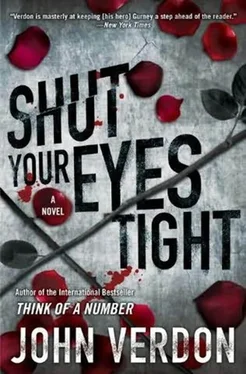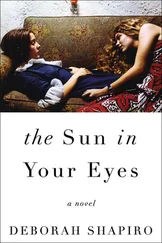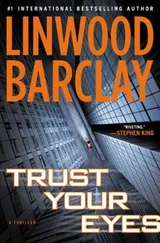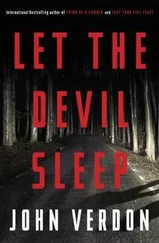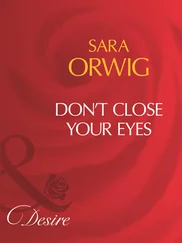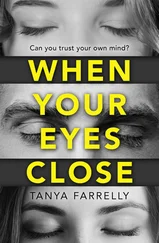“Is that the way they spoke to each other?” asked Gurney. “Ashton speaking English, Flores speaking Spanish?”
“I asked about that myself. Ashton told me it was a recent development, that up till a month or two earlier they’d both been speaking English. Said he believed it was a form of hostile regression, that going back to his native Spanish was Hector’s way of rejecting Ashton-by rejecting the language he’d taught him. Or some kind of psychobabble bullshit like that.”
On the screen, as Ashton was about to exit the frame, the view switched to another camera to reveal him walking toward a Greek-columned garden pavilion-the kind of miniature Parthenon-like structure popularized by Victorian landscape designers-where four tuxedoed men were arranging their music stands and folding chairs. Ashton spoke briefly with the tuxedoed men, but none of the voices were audible.
“String quartet instead of your basic DJ?” asked Gurney.
“This is Tambury-nothing basic about it.” Hardwick fast-forwarded through the rest of Ashton’s conversation with the musicians, through panning shots of the baronial grounds and main house, the catering staff arranging dinner plates and silverware on white linen tablecloths, a pair of willowy female bartenders setting up bottles and glasses, close-ups of red and white petunias cascading from carved stone urns.
“This was exactly four months ago?” asked Gurney.
Hardwick nodded. “Second Sunday in May. Perfect time for a wedding. Glories of spring, balmy breezes, nest-building time, doves cooing.”
The relentlessly sardonic tone was rubbing Gurney’s nerves raw.
When Hardwick stopped fast-forwarding and returned the DVD to “play” mode, the camera was focused on an elaborate ivied trellis that served as an entryway to the main expanse of the lawn. A loose line of wedding guests was strolling through it. There was music in the background, something cheerily baroque.
As each couple passed under the arched bower, Hardwick identified them, referring to a wrinkled list he’d pulled from his pants pocket. “Tambury chief of police Burt Luntz and his wife… President of Dartwell College and her husband… Ashton’s literary agent and her husband… President of the Tambury British Heritage Society and his wife… Congresswoman Liz Laughton and her husband… Philanthropist Angus Boyd and his young male whatever-he-is, calls him his ‘assistant’… Editor of the International Journal of Clinical Psychology and his wife… Lieutenant governor and his wife… Dean of the medical-”
Gurney interrupted. “Are they all like that?”
“Do they all reek of money, power, connections? Yes. CEOs, major politicians, newspaper publishers, even a goddamn bishop.”
For the next ten minutes, the stream of privileged overachievers flowed into Scott Ashton’s backyard botanical garden. None appeared out of place in the rarefied environment. But none appeared particularly thrilled to be there.
“We’re getting to the end of the line,” said Hardwick. “Next we have the bride’s parents: Dr. Withrow Perry, world-famous neurosurgeon, and Val Perry, his trophy wife.”
The doctor looked to be in his early sixties. He had a fleshy, contemptuous mouth, the double chin of a gourmand, and sharp eyes. He moved with a surprising quickness and grace-like a former fencing instructor, thought Gurney, remembering the lessons he and Madeleine had taken together in the second or third year of their marriage, when they were still actively searching for things they might enjoy doing together.
The Val Perry standing beside the doctor on the screen like a film fantasy of Cleopatra radiated a satisfaction missing from the Val Perry who’d visited Gurney that morning.
“And now,” said Hardwick, “the groom and his soon-to-be-headless bride.”
“Jesus,” murmured Gurney. There were times when Hardwick’s lack of feeling seemed to go far enough beyond routine cop cynicism to qualify him as a marginal sociopath. But this was neither the time nor the place to… to what? To tell the man he was a sick prick?
Gurney took a deep breath and refocused his attention on the video-on Dr. Scott Ashton and Jillian Perry Ashton walking together toward the camera, smiling-a smattering of applause, a few shouts of “Bravo!” and a joyful baroque crescendo in the background.
Gurney was staring in amazement at the bride.
“The hell is wrong?” asked Hardwick.
“She’s not quite what I imagined.”
“The hell did you expect?”
“From what her mother told me, I wasn’t expecting her to look like a cover shot on Brides magazine.”
Hardwick studied the image of the beaming young beauty in a floor-length white satin gown, the modest neckline dotted with tiny sequins, her white-gloved hands holding a bouquet of pink tea roses, her golden hair swept up in a tight swirl topped by a glittering tiara, her almond eyes accented with a touch of eyeliner, her perfect mouth enlivened with a lipstick that matched the pink of the tea roses.
Hardwick shrugged. “Don’t they all want to look like that?”
Gurney frowned, troubled by the conventionality of Jillian’s appearance.
“It’s in their goddamn genes,” Hardwick insisted.
“Yeah, maybe,” said Gurney, unconvinced.
Hardwick fast-forwarded through scenes of bride and groom moving through the crowd, the string quartet attacking their instruments with great gusto, the catering staff gliding among the sipping and munching throng. “We’re going to cut to the chase,” he said, “straight to the segment where everything happens.”
“You mean the actual murder?”
“Plus some interesting stuff just before and just after.”
After a few seconds of digital artifacts, the screen was filled with a medium shot of three people conversing in a triangle. Some words were more audible than others, partly buried in the buzz of other conversations, partly overwhelmed by the exuberance of Vivaldi.
Hardwick pulled another folded sheet of paper from his pocket, opened it, and handed it to Gurney, who recognized the familiar format: the typed transcript of a recorded conversation.
“Watch the video and listen to the sound track,” said Hardwick. “I’ll tell you when you can start following it on the transcript, in case you can’t make out the audio. The three speakers are Chief Luntz and his wife, Carol, both facing you, and Ashton, with his back to you.” The Luntzes were holding tall drinks topped with lime wedges. The chief was balancing a couple of canapés on the palm of his free hand. Whatever Ashton was drinking he was holding in front of him, out of the fixed camera’s line of sight. The audible snippets of dialogue seemed thoroughly trite and came entirely from Mrs. Luntz.
“Yes, yes… day for it… fortunate that the forecast, which was very… flowers… the time of year that makes living in the Catskills worthwhile… music, very different, perfect for the occasion… mosquito, not a single… altitude makes it impossible, thank God, because mosquitoes down on Long Island… ticks, no ticks at all, thank God… had Lyme disease, absolutely horrible… wrong diagnosis… nauseous, aching, absolutely in despair, wanted to kill herself, the pain…”
As Gurney glanced sideways at Hardwick on the couch, a raised eyebrow questioning the point of all this, he heard the chief’s louder voice for the first time. “Carol, it’s no time to be talking about ticks. It’s a happy day-right, Doctor?”
Hardwick pointed a forefinger at the top line of the typed page on Gurney’s lap.
Gurney looked down at it, finding it a useful supplement to the hubbub on the sound track.
SCOTT ASHTON:
Very happy, indeed, Chief.
CAROL LUNTZ:
Читать дальше
